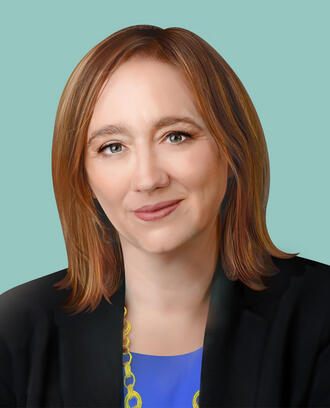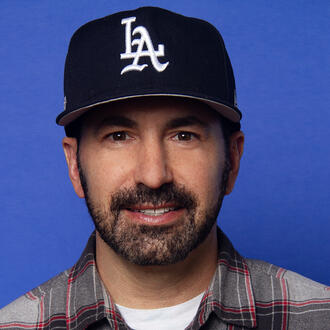Ideas Made to Matter
A bias for Agile, and a refusal to stay inside (the bank)
By
Markus Perschl is an Agile devotee.
“There is no other way to succeed in the digital world than to allow for experiments and iterations – Agile is a must,” he told us when answering our question set about how leaders work with ideas.
Perschl is a managing director at Austria’s Addiko Bank AG. After leading numerous large-scale transformations, he is focusing on best-in-class operating platforms for financial institutions. The banking industry can be staid and sedate, he said, seeking success with whatever strategy worked before. But in the digital era (call it the “Second Machine Age”) Perschl won’t stay cloistered. In addition to agile, he looks outside “corporate boundaries” and speaks frequently with customers to keep his team out in front.
Having completed the Advanced Management Program at MIT Sloan, he recently visited the school to talk with senior lecturer Court Chilton’s “Managing in Ambiguity” class. We asked him how he works with ideas.
Who inspires you?
Passionate people: It's contagious to watch people who follow their dreams, love what they do, and realize their potential. I find it also inspiring to be around people who unite great talent with depth and humility. This combination is hard to encounter.
Citizens who contribute to their communities: So much of our society depends on that, however, it's not talked about all that much. I admire and always support dedicated people that help hold our community together.
My parents: They have raised my brother and me in a remarkable way and taught us to be authentic, courageous, and compassionate while taking full responsibility for our lives. Traits that help me master my daily challenges.
Where do you go to get new ideas?
I follow the most recent publications, study the use cases around the industry, and regularly visit MIT Sloan to get acquainted with the latest trends.
Given the ever-rising complexity in our environment, we need to dismiss the notion that we can manage all new challenges within our corporate boundaries. Therefore, I am a firm believer of ecosystems that are built around financial institutions: This includes co-operations with fintechs, universities, and other research facilities, allowing for broader idea generation.
Who do you share new ideas with?
In case I come across an idea that is worth discussing, I usually involve the relevant teams of the company from the very beginning. Indeed, chance favors the connected minds. As far as new industry trends are concerned, we tend to apply agile methodologies for any further steps.
As somebody who believes in the power of collaboration, I frequently liaise with people from different backgrounds on new ideas and their impact. This informal platform includes entrepreneurs, academic scholars, consultants, as well as trusted coworkers. We try to meet up once a quarter, with a clear agenda to be defined upfront.
How do you test ideas?
It‘s a popular misbelief – especially in the banking world – that the factors that led to past success will also lead to future success. There is no other way to succeed in the digital world than to allow for experiments and iterations – Agile is a must.
Most companies don’t lack good ideas, but rather have a “bring the idea to the market” problem. We try to overcome this by establishing scoping sprints that last a few weeks and set the basis for an investment decision. In case approved, a minimum viable product is being built within a few months, to be possibly followed by a full roll-out.
What was your worst idea?
I have learned many lessons over time, and I'm sure there are still many to come. Looking back, all my actions — better or worse ones — have made me the person I am today. Hence I would not like to highlight a single worst idea.
If you ask me about the most important lesson learned though, I would stress the need for a balanced approach towards change. Any kind of change can only sustain if you cover both direction (referring to all analytical frameworks) and interaction (referring to all change-management measures) — neither can make up for the lack of the other.
How do you know an idea is a good one?
I have the luxury of working with many smart people, so my challenge isn’t a lack of good ideas, but rather figuring out which ideas are worth spending time and resources on. In order to draw a conclusion, I always take the view of the customer. We talk a lot to them to validate our assumptions and to understand what really matters to them.
Customer focus is nothing new, but its relevance is constantly rising as companies are undergoing digital transformations, working on customer experience, and establishing a sustained customer culture. This is especially true for financial institutions that need to switch from a product-centric to a customer-centric view.
What's the biggest idea you are working on right now?
As I'm currently focusing on the COO agenda for financial institutions, I spend a lot of time on the design and implementation of best-in-class operating platforms. This task has many facets: How do you become a highly-efficient service provider while improving customer experience and internal capabilities? What is a favorable organizational setup for digital and data analytics? How to establish an end-to-end process mindset and where to apply robotic process automation? How to become an attractive employer for digital talent? And so on. Dealing with these questions is vital to financial institutions, especially in Europe where competition, regulatory requirements, and low interest rates create significant pressure on profitability and require new ways of working. While we have managed to cope with many challenges, there are still a good number remaining.
At MIT Sloan, we talk about ideas made to matter — ideas that are carefully developed and have meaningful impact in the world. In that context — what is your idea made to matter?
Let me conclude with my strong belief in humanistic values and our responsibility to make the world a better place. This should be the overarching principle for all our actions, this is my idea that matters most. How to develop a company alongside humanistic values? Amongst others, I try to provide clear guidance, ensure open and transparent communication, and establish a self-organizing environment that makes it possible for employees to develop to their full potential — all this being accompanied by a culture of sustainability and mutual respect. Encouragingly, all relevant studies confirm that companies adopting such a holistic approach deliver high performance in the long run. It is a fact that strong values and high performance go together.



